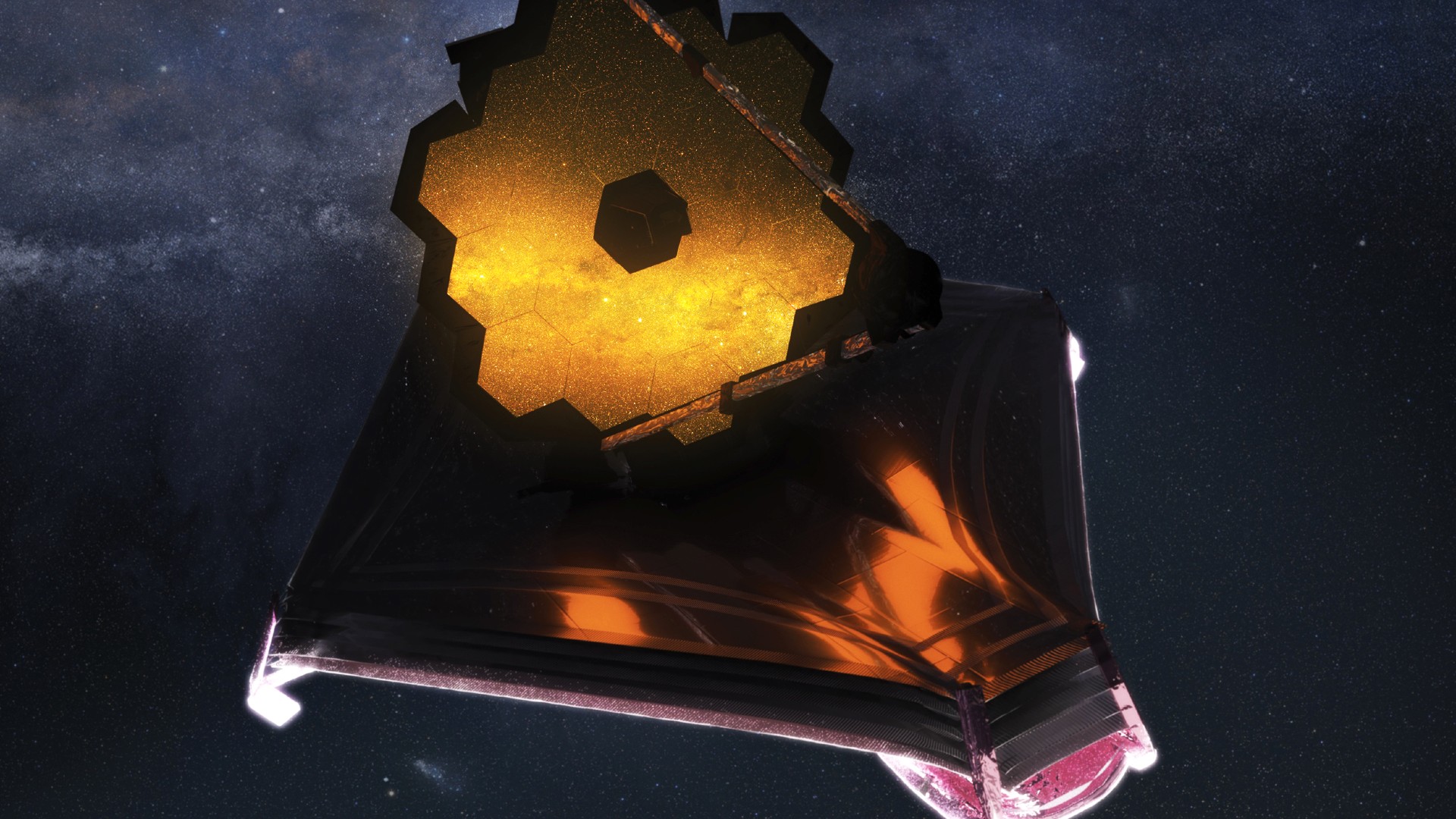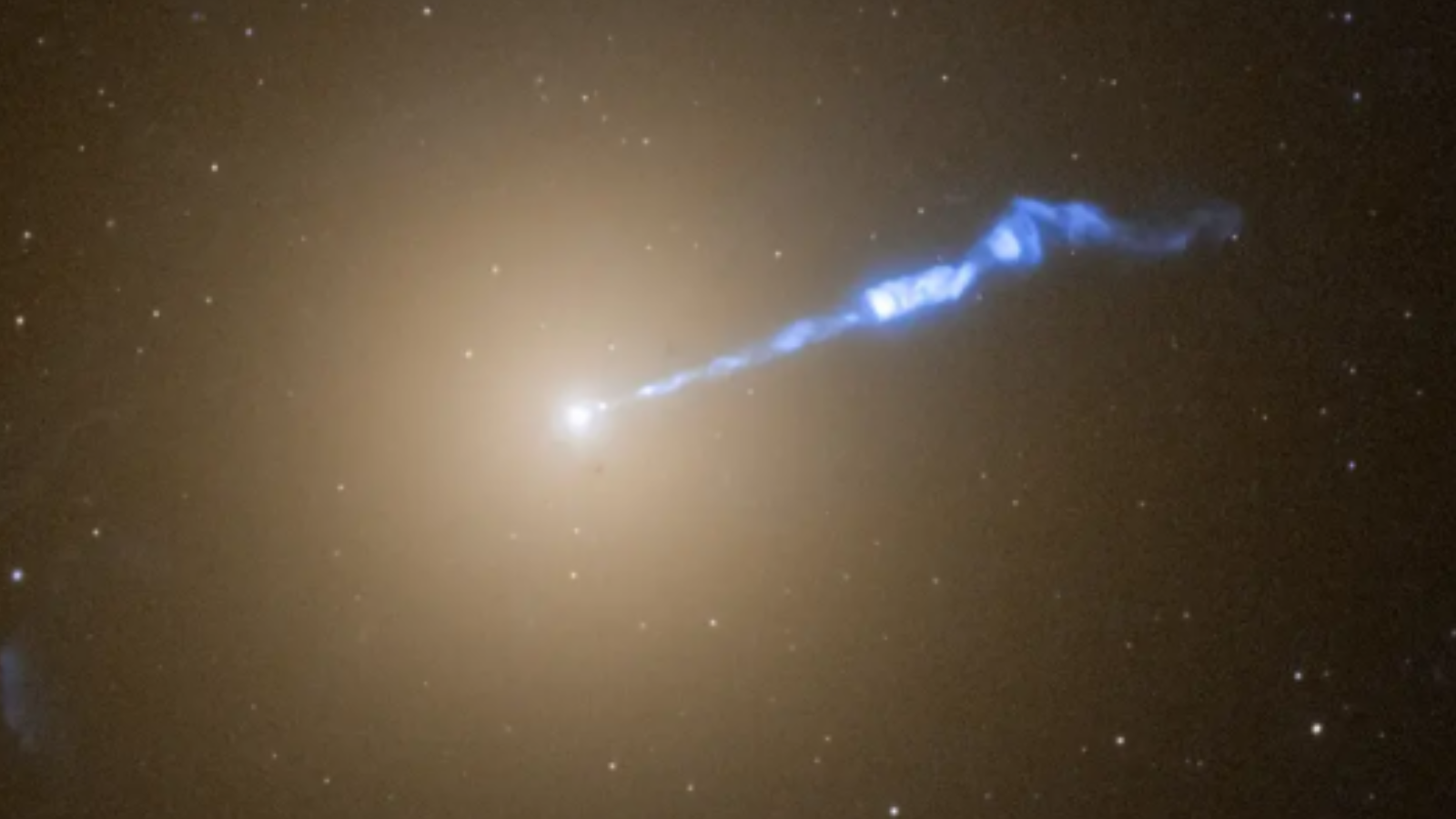The James Webb Space Telescope can use its full name in British journal again after controversy
The Royal Astronomical Society briefly mandated that all journal articles refer to the observatory as 'JWST', before NASA cleared former chief James Webb of persecuting queer staffers.

A prominent British scientific society is allowing James Webb's name to appear in academic papers again, following an "apparent failure" to investigate the former NASA chief's past.
The Royal Astronomical Society (RAS) previously criticized NASA for not immediately addressing concerns that Webb persecuted queer employees; the NASA-led James Webb Space Telescope (JWST or Webb) that launched in December 2021 is named after him. But with new information to hand suggesting Webb played no direct role in these issues, Webb's name can now reappear in scientific papers, the RAS stated Dec. 22.
"The RAS will now allow authors submitting scientific papers to its journals to use either 'James Webb Space Telescope' or the acronym 'JWST' to refer to the observatory," RAS officials wrote. The major journals of the RAS include the Monthly Notices of the Royal Astronomical Society (MNRAS), one of the top astronomical journals worldwide.
Related: James Webb Space Telescope's best images of all time
In October, the RAS said it wrote NASA expressing concerns about how the telescope was named, citing "the apparent failure to investigate James Webb's background and the dismissal of requests to rename the telescope." The society said that all journal publications referring to the telescope must use the acronym JWST only, without spelling out the name, pending more information about Webb's past.
Weeks later, NASA released an 87-page report concluding that Webb had no direct role in what has been dubbed the "Lavender Scare," a set of U.S. government actions which discriminated against or caused the firings of queer employees in the 1950s. Part of the investigation included NASA chief historian Brian Odom and an unidentified outside historian surveying more than 50,000 pages from the period of 1949 to 1969.
Related: It's official: NASA won't rename James Webb Space Telescope
"To date, no available evidence directly links Webb to any actions or follow-up related to the firing of individuals for their sexual orientation," the Nov. 18 report reads. "Based on the available evidence, the agency does not plan to change the name of the James Webb Space Telescope," NASA officials added in a statement announcing the report.
Breaking space news, the latest updates on rocket launches, skywatching events and more!
Critics of the investigation, however, have said individuals whose names are used for prominent missions or monuments should be held to a higher standard besides a simple lack of evidence. They have also pointed to the broader cultural environment of the Cold War, when society at large persecuted queer individuals and little was done to protect those people.
Elizabeth Howell is the co-author of "Why Am I Taller?" (ECW Press, 2022; with Canadian astronaut Dave Williams), a book about space medicine. Follow her on Twitter @howellspace. Follow us on Twitter @Spacedotcom or Facebook.

Elizabeth Howell (she/her), Ph.D., was a staff writer in the spaceflight channel between 2022 and 2024 specializing in Canadian space news. She was contributing writer for Space.com for 10 years from 2012 to 2024. Elizabeth's reporting includes multiple exclusives with the White House, leading world coverage about a lost-and-found space tomato on the International Space Station, witnessing five human spaceflight launches on two continents, flying parabolic, working inside a spacesuit, and participating in a simulated Mars mission. Her latest book, "Why Am I Taller?" (ECW Press, 2022) is co-written with astronaut Dave Williams.
